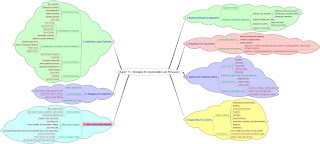Chapter 19 – “Soul of a Citizen: Living with Conviction in a Cynical Time”
Written in 1999, I believe that Paul Rogat Loeb would be disappointed in how limited the impact that ordinary citizens can have in our society. He describes the “real” story of Rosa Parks in which she is not simply the woman who refused to give up her seat on the bus, but a woman deeply involved in the civil rights movement. The action was deeply orchestrated to play to our sense of fairness.
I think we were much more innocent than we are now. Californian voters have seen to propositions used by politicians as a way to avoid controversial issues. Now these politicians are starting to use propositions to their benefit. Specifically, the entrenched politicians attempted to pass proposition 27, which was intended to leave the gerrymandering under the power of the politicians. Although the proposition was soundly defeated, it shows that the pols are being to see ways they can use the propositions to their own benefit. The reason it failed was largely the efforts of one rich man, Charles Munger Jr., who spent $12.6 million of his own money (about 10% of his entire wealth) to defeat proposition 27 and support proposition 20, which strengthened the hold that citizens have in determining the state districts.
We have seen the government make the citizens pay for the greed of the big banks. We have seen the housing crisis not only impact older people and their retirements, but also young people who lost their first homes. We saw these same banks hand out millions on millions of bonuses using the bailouts from the citizens. We have seen a rich, ethics challenged, businesswoman nearly buy the Californian governor’s race.
But this may not be all bad. 2010 has been the year of the angry voter. Perhaps this will stir action to address these issues. I think Paul Rogat Loeb would approve.



